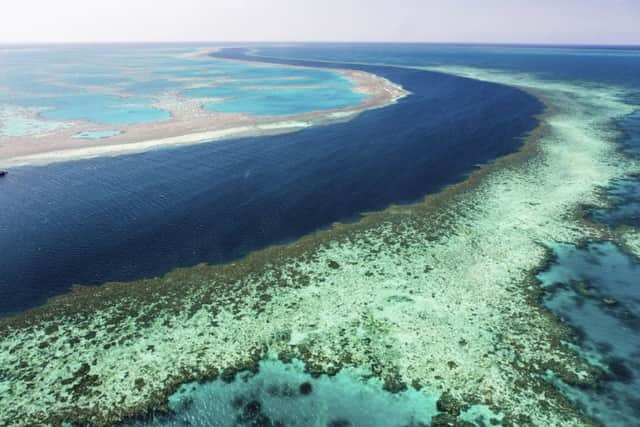Shrinking earth: Warming '˜threatens area the size of India'


The researchers said that melting permafrost - soil that has remained frozen for two or more years - was likely to unleash far more carbon into the atmosphere than previously thought.
The vast majority of permafrost is in the Arctic, which recent studies have shown is warming twice as fast as the rest of the world.
Advertisement
Hide AdAdvertisement
Hide AdWhen it melts, it releases the greenhouse gases carbon dioxide and methane.
Lead scientist Dr Sarah Chadburn, from Leeds University, said: “Achieving the ambitious Paris Agreement climate targets could limit permafrost loss. For the first time we have calculated how much could be saved.”
A separate report warned that Australia’s Great Barrier Reef had been hit by severe coral “bleaching” for the second year in a row in the face of record-breaking temperatures.
Bleaching happens when algae that lives in the coral is expelled due to stress caused by extreme and sustained changes in temperatures, turning the coral white and putting it at risk of dying.
Advertisement
Hide AdAdvertisement
Hide AdResearchers said the back-to-back bleaching was being driven by climate change and the window was closing fast to cut the greenhouse gas emissions pushing up temperatures and harming the reef. Aerial surveys along the entire length of the Great Barrier Reef show two-thirds suffered severe bleaching, with the middle third of the reef suffering the most intense damage and only the southern third unscathed.
This year’s problems follow severe bleaching last year, the worst in the northern third of the reef. Last year’s bleaching was driven in part by the “El Nino” weather phenomenon in the Pacific, which pushes up temperatures.
With it taking a decade for corals to fully recover from damage, the back-to-back bleaching left “zero prospect” of recovery for reefs hit last year, the experts warned.
The Great Barrier Reef is the world’s largest collection of coral reefs, with 400 types of coral and 1,500 species of fish.